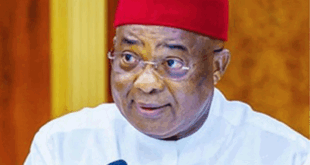The restrictions severely impacted many online businesses that used online platforms like Instagram to advertise and sell products or services.
Ardavan Yousefi has gotten so used to life under Iran’s sweeping internet restrictions that for him, a recent decision to lift a ban on messaging service WhatsApp went virtually unnoticed.
“Oh wow, is it really removed now?” Yousefi, a cafe owner from the capital Tehran, said of the two-year ban on the popular application.
To be certain, he switched off his virtual private network (VPN) encryption service, which allows users to mask their locations and bypass firewalls and sent a message.
But while WhatsApp and Google Play services have been restored in a decision late week by Iran’s Supreme Council of Cyberspace, many other platforms remain banned.
“It doesn’t change much, since I still need VPNs for Instagram, Telegram and other platforms,” said 31-year-old Yousefi.
The cyber council’s decision came as Iranians grapple with high inflation, a plunging currency, years of international sanctions and more recently, soaring tensions with regional rival Israel.
In recent weeks, daily life has been disrupted by widespread closures of banks, government offices and schools due to energy shortages exacerbated by a cold wave. Air pollution has also worsened with the arrival of winter.
Amir Rashidi, director of digital rights and security at the US-based advocacy platform Miaan Group, said lifting the WhatsApp ban “was aimed at creating minimal public satisfaction” in face of these woes.
WhatsApp “is less popular in Iran” than other messaging apps like Instagram and Telegram, which remain blocked, said Rashidi.
Online app store Google Play “is not a platform for political dissent”, and so authorities have lifted the ban on it too as it “does not pose a significant threat to the Islamic republic’s stability”, he added.
President’s promise
Iranian authorities blocked several apps and online services in the wake of nationwide protests triggered by the September 2022 death in custody of Mahsa Amini.
Amini, a 22-year-old Iranian Kurd, had been arrested for allegedly violating the Islamic republic’s strict dress code, which requires women to cover their heads and necks in public.
The restrictions severely impacted many online businesses that used online platforms like Instagram to advertise and sell products or services.
The late ultraconservative leader Ebrahim Raisi, Iran’s president at the time, accused the banned apps of fomenting unrest.
He said the online services would only be restored in Iran if they had a legal representative in the country.
Meta, the American tech giant that owns Facebook, Instagram and WhatsApp, has refused to set up offices in Iran, which has been under US sanctions.
Facebook, YouTube, and X and its predecessor Twitter have been restricted since 2009.
President Masoud Pezeshkian, who took office in July, has pledged to ease the internet restrictions, but has faced opposition from lawmakers in the conservative parliament.
Some of them have argued that easing the curbs could benefit Iran’s enemies or insisted access should comply with “Islamic values and laws”.
‘Good sign’
Critics have long argued the restrictions hinder communication and business, forcing Iranians to use costly VPNs.
More than 80 percent of Iranians online use VPNs, according to Mehr news agency citing the telecommunications ministry.
Mehr has also reported a plan to lift some restrictions on platforms like YouTube and Telegram that would allow access through “governable portals”.
The report gave no timeline for the move, which has not been officially announced.
Communication Minister Sattar Hashemi has called the decision to lift the ban on WhatsApp “the first step” towards broader internet freedoms.
Amir Heidari, a 26-year-old software developer, said that “it’s much easier now to reach my friends and family.”
While Heidari was not expecting further changes soon, he said reinstating WhatsApp was “still a good sign”.
For Elaheh Khojasteh, a 31-year-old fitness trainer from Ahvaz in Iran’s southwest, the decision made no actual difference.
“There are much more important concerns that need to be solved,” she said.
 3rd Eye Africa TV Illuminating Truth, Shaping Perspectives.
3rd Eye Africa TV Illuminating Truth, Shaping Perspectives.





